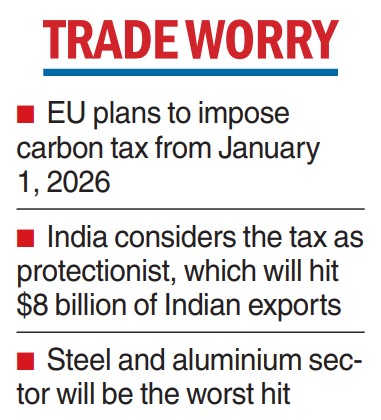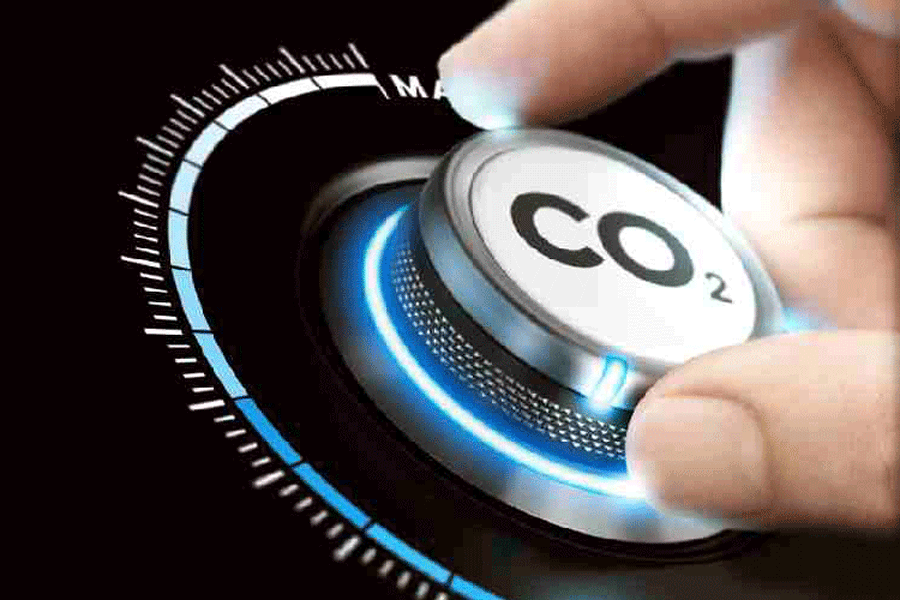The controversial carbon tax on Indian products is up for discussion at the next round of talks on the free trade agreement with the EU later this month.
Indian negotiators will take up the tax that threatens to hit $8 billion in exports with their EU counterparts.
The carbon border adjustment mechanism or carbon tax is seen as a protectionist move by Europe, with Indian steel and aluminium makers hit the most.
The trade negotiators from India and the EU are due to meet on June 19-23.
Indian officials said the levy could result in 20-35 per cent additional tax on select Indian goods.
“Implementation of CBAM has the potential of taking away some of the market access benefits that India is hoping to gain under the FTA being negotiated with the EU. In the future, if the CBAM products list is expanded, more items from India could get affected. India needs to discuss with the EU how the situation can be avoided,” commerce ministry officials said.
“The MSMEs in India will find it especially tough to meet the reporting obligations. There may be a need for exempting such units,” they added.
The European Union has stated that it will collect firm-wise data from October 1 and slap the tax from January 1, 2026.
With nearly 2.5-2.8 tonnes of CO2 generated for each tonne of steel, the tax will severely impact the steel industry.
The sector contributes nearly 7 per cent to 8 per cent of global CO2 emissions and around 12 per cent in India.
“The CBAM in the EU will have a carbon tax on imports from any country that has higher carbon dioxide emission per tonne of crude steel. India is around 2.5 tonnes of carbon dioxide per tonne of crude steel whereas the EU is around 1.8 and the US is lower,” according to a report by Ficci- Deloitte on the steel sector.
“It would translate into a 20-35 per cent tax on select imports to the EU, starting January 1, 2026. Iron and steel exports will face extra scrutiny under the mechanism.The Indian steel industry while working on its transition to net zero and decarbonisation would also need tobe extra careful with the CBAM legislation and accordingly transit towards green steel.”
The EU will charge CBAM tax initially on steel, aluminium, cement, fertiliser, hydrogen, and electricity.











